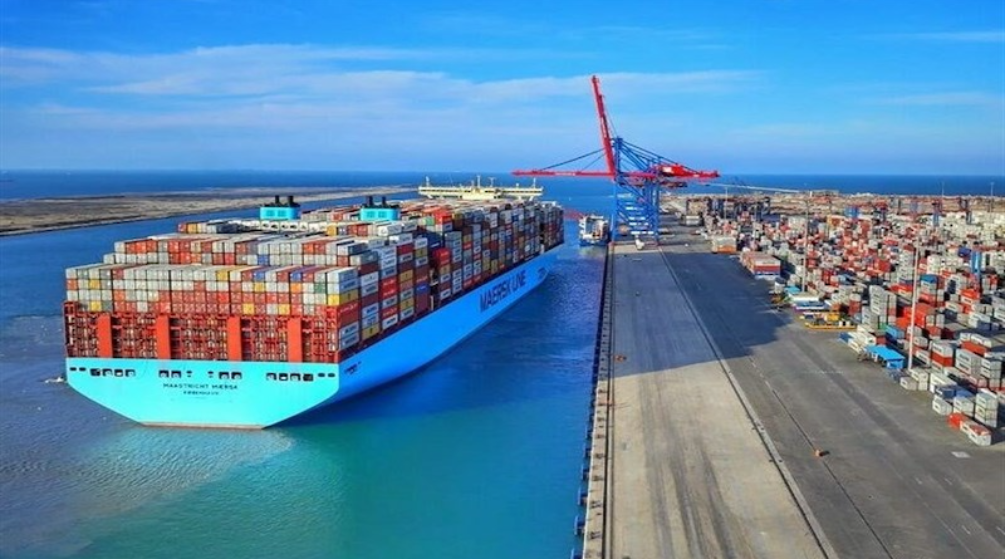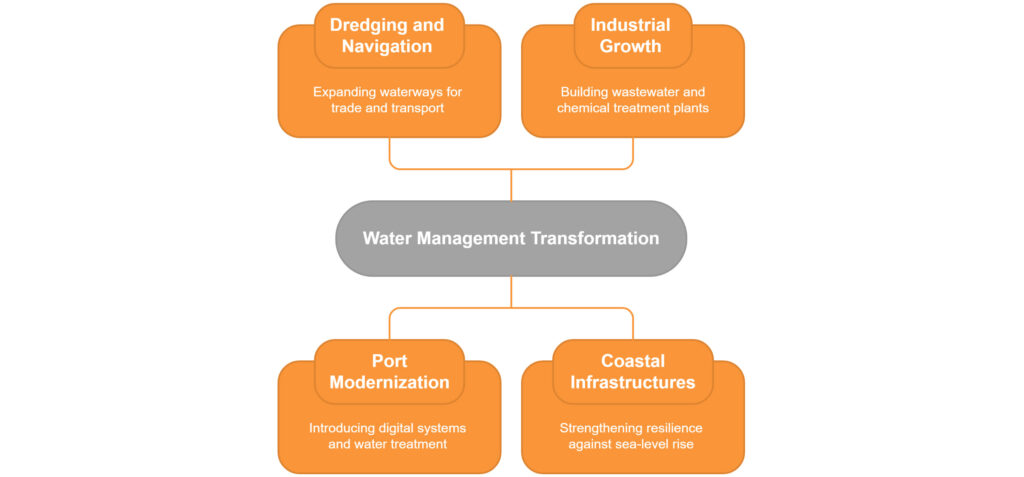
Bangladesh stands at the edge of a new era in its development journey. As the country prepares to graduate from its Least Developed Country (LDC) status by 2026, one of its greatest challenges and opportunities lies in how it manages water.
Bangladesh’s rivers, deltas, and coastal areas have always shaped the country’s future. The water networks support farming, trade, and transport for millions of people. At the same time, floods, riverbank erosion, and saltwater intrusion continue to damage communities and livelihoods. With climate change making these challenges more severe, Bangladesh is shifting from aid-dependent water management toward smarter, investment-driven approaches that emphasize innovation, technology, and local expertise.
The Delta in Transition
The Bangladesh Delta Plan 2100, prepared in association with the Netherlands, envisions a future where water becomes not just a natural resource, but a foundation for economic resilience. To achieve this, the country will need to invest more than 2% of its GDP annually in water-related infrastructure – a scale of commitment that reflects both the urgency and ambition of the task ahead.
Across the country, projects are already reshaping the water landscape:
- Dredging and navigation are being expanded to restore rivers and improve connectivity for trade and transport.
- Port modernization efforts are introducing digital vessel traffic management and surface water treatment systems.
- Industrial growth is driving demand for wastewater and chemical treatment plants in new economic zones.
- Coastal infrastructures such as embankments, roads, and bridges connecting different coastal districts; is strengthening resilience against rising sea levels and storm surges.

Each of these efforts reflects a shift in thinking: water management is no longer seen only as disaster prevention, but as an enabler of growth, innovation, and sustainability.
Innovating Water Management in Bangladesh
For decades, international engagement in Bangladesh’s water sector revolved around donor assistance and large development grants. Today, that dynamic is changing. As Bangladesh’s economy grows, the conversation is turning toward partnerships built on shared value where technology, finance, and knowledge flow both ways.
Global water leaders such as the Netherlands are showing increasing interest in Bangladesh’s delta economy, attracted by opportunities in dredging, sediment management, port development, and wastewater treatment. However, success depends not only on funding but also on developing local systems capable of sustaining technology over time. Maintenance, repair, and after-sales support have become just as important as construction itself.
This approach calls for greater collaboration between local and international partners, including expertise from the Dutch water sector, which has made remarkable progress in water engineering and innovation, with an emphasis on co-design, training, and capacity building; ensuring that solutions work effectively in the field, not just on paper.
Innovation at the Core
From river sediment monitoring to smart flood forecasting, technology is becoming key to how Bangladesh manages its water resources. The future lies in data-driven systems that can predict, adapt, and respond in real time, using everything from satellite imagery to automated dredging equipment; areas where the Dutch water sector has excelled and can offer valuable expertise.
The growing interest in Public–Private Partnerships (PPPs) is also redefining how infrastructure is financed and maintained. Models like Build–Operate–Transfer (BOT) are helping attract private investment while ensuring long-term accountability, benefiting from lessons learned in the Netherlands’ successful water management projects.
Toward a Resilient Delta Economy
Bangladesh’s delta is one of the most dynamic on Earth: fertile yet fragile, vast yet vulnerable. The nation’s future prosperity depends on how effectively it can turn this complexity into strength.
The path forward lies in co-creation rather than charity, in knowledge exchange rather than dependency, and in innovation rather than imitation. By blending international expertise with local ingenuity, Bangladesh can lead a new wave of delta development; one that safeguards its people, strengthens its economy, and redefines what resilience looks like in a changing world.
Managing water in Bangladesh is about shaping the country’s future. Every river, every port, and every drop play a key role in building a stronger, more sustainable nation, with guidance and expertise from the Dutch water sector helping to create smarter, long-lasting solutions.
Author: Md. Rihan Hossain, an Associate in the Gender and Basic Services Portfolio at Innovision Consulting